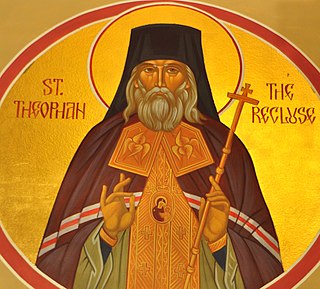A Quote by Maggie Gallagher
For faithful Catholics, communion is not just a nice ritual: It is the body and blood of Jesus Christ, and the ultimate sign of our willingness to be incorporated into the church.
Related Quotes
For 2,000 years, the Church has been the cradle in which Mary places Jesus and entrusts Him to the adoration and contemplation of all peoples. May the humility of the Bride cause to shine forth still more brightly the glory and power of the Eucharist, which she celebrates and treasures in her heart. In the sign of the consecrated Bread and Wine, Christ Jesus risen and glorified, the light of the nations, reveals the enduring reality of His Incarnation. He remains living and real in our midst in order to nourish the faithful with His Body and Blood.
He who receives Communion is made holy and Divinized in soul and body in the same way that water, set over a fire, becomes boiling... Communion works like yeast that has been mixed into dough so that it leavens the whole mass; ...Just as by melting two candles together you get one piece of wax, so, I think, one who receives the Flesh and Blood of Jesus is fused together with Him by this Communion, and the soul finds that he is in Christ and Christ is in him
the Twelve Apostles are the most evident sign of Jesus' will regarding the existence and mission of his Church, the guarantee that between Christ and the Church there is no opposition: despite the sins of the people who make up the Church, they are inseparable. Therefore, a slogan that was popular some years back, 'Jesus yes, Church no,' is totally inconceivable with the intention of Christ. This individualistically chosen Jesus is an imaginary Jesus.
Just as in a physical body the operation of one member contributes to the good of the whole body, so it is in a spiritual body such as the Church. And since all the faithful are one body, the good of one member is communicated to another; everyone members, as the Apostle says, of one another [Eph 4:25]. For that reason, among the points of faith handed down by the Apostles, is that there is a community of goods in the Church, and this is expressed in the words Communion of Saints.
[Christ's] mission and work it is to help against sin and death, to justify and bring life. He has placed his help in baptism and the Sacrament [i.e., communion/Eucharist/Lord's supper], and incorporated it in the Word and preaching. To our eyes Baptism [capitalized in original] appears to be nothing more than ordinary water, and the Sacrament of Christ's body and blood simple bread and wine, like other bread and wine, and the sermon, hot air from a man's mouth. But we must not trust what our eyes see.
Thoughtful men, with hearts craving the truth, have come to seek in the Catholic Church the road which leads with surety to eternal life. They have understood that they could not cleave to Jesus Christ as the Head of the Church if they did not belong to the Body of Jesus Christ which is the Church. Nor could they ever hope to possess in all its purity the faith of Jesus Christ if they were to reject its legitimate teaching authority entrusted to Peter and his successors.
The Church of Jesus Christ of Latter-day Saints proclaims that Jesus Christ is the Son of God in the most literal sense. The body in which He performed His mission in the flesh was sired by that some Holy Being we worship as God, our Eternal Father. Jesus was not the son of Joseph, nor was He begotten by the Holy Ghost.
The ecclesial communities which have not preserved the valid Episcopate and the genuine and integral substance of the Eucharistic mystery, are not Churches in the proper sense; however, those who are baptized in these communities are, by Baptism, incorporated in Christ and thus are in a certain communion, albeit imperfect, with the Church.
My church, the Church of Jesus Christ of Latter-Day Saints, puts Jesus Christ at the focal point. It's the focus of everything. What I really hope is that people of faith in this country can come together in this election to ensure we elect a president who's going to do what's required to protect this basic principle of our country.



































